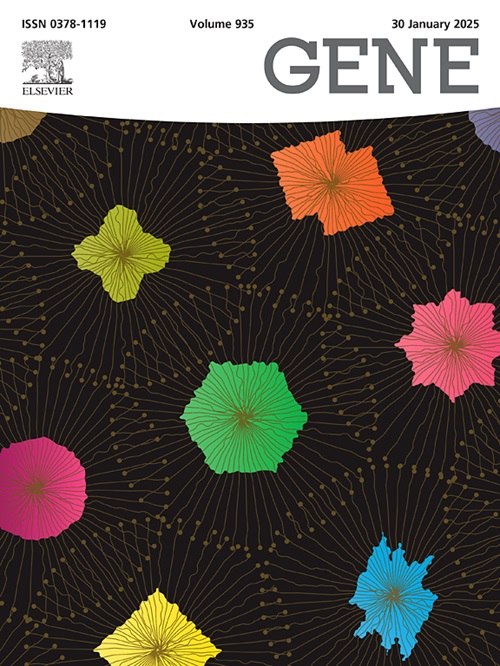The current report on drug development focuses on “The new dimension” of cancer hallmarks
IF 2.4
3区 生物学
Q2 GENETICS & HEREDITY
引用次数: 0
Abstract
Cancer remains a significant global challenge, affecting millions, but progress has been made in understanding its development and advancement. The discovery of cancer drugs focuses on identifying “new dimension” hallmarks of cancer, such as phenotypic plasticity, senescence, polymorphic microbiota, and non-mutational epigenetic reprogramming. These elements are crucial in tumor development and treatment. Recent small molecule anticancer drugs target these characteristics and are currently undergoing preclinical testing, clinical trials, and approval. This review aids in developing strategies for cancer treatment. This review examines pharmacological agents aimed at the new dimension hallmarks of cancer, specifically those that address phenotypic plasticity, such as dedifferentiation, blocked differentiation, and trans-differentiation. Drugs that eliminate senescent cells are categorized as senolytic and senomorphic agents. This review analyzes microbial metabolites that could affect the efficacy of chemotherapeutic agents, specifically those derived from Fusobacterium nucleatum, Helicobacter pylori, Escherichia coli, Bacteroides fragilis, Streptococcus gallolyticus, Porphyromonas gingivalis, Mycoplasma hyorhinis, and Enterococcus faecalis. Drugs targeting non-mutational epigenetic reprogramming encompass DNA methylation inhibitors, histone modification modulators, BET inhibitors, and chromatin remodeling complexes. This review contributes to the development and exploration of strategies aimed at overcoming challenges in cancer treatment. This will lead to improved outcomes for patients and a more optimistic future in cancer treatment.
目前关于药物开发的报告侧重于癌症特征的“新维度”。
癌症仍然是一个重大的全球挑战,影响着数百万人,但在了解其发展和进步方面取得了进展。癌症药物的发现重点是识别癌症的“新维度”特征,如表型可塑性、衰老、多态微生物群和非突变表观遗传重编程。这些因素对肿瘤的发展和治疗至关重要。最近的小分子抗癌药物针对这些特征,目前正在进行临床前测试、临床试验和批准。这篇综述有助于制定癌症治疗策略。本文综述了针对癌症新维度特征的药理学药物,特别是那些解决表型可塑性的药物,如去分化、阻断分化和反分化。消除衰老细胞的药物分为抗衰老药物和促衰老药物。本文分析了可能影响化疗药物疗效的微生物代谢物,特别是来自核梭杆菌、幽门螺杆菌、大肠杆菌、脆弱拟杆菌、溶胆链球菌、牙龈卟啉单胞菌、缩肝支原体和粪肠球菌的微生物代谢物。靶向非突变表观遗传重编程的药物包括DNA甲基化抑制剂、组蛋白修饰调节剂、BET抑制剂和染色质重塑复合物。这一综述有助于制定和探索旨在克服癌症治疗挑战的策略。这将改善患者的治疗效果,为癌症治疗带来更乐观的未来。
本文章由计算机程序翻译,如有差异,请以英文原文为准。
求助全文
约1分钟内获得全文
求助全文
来源期刊

Gene
生物-遗传学
CiteScore
6.10
自引率
2.90%
发文量
718
审稿时长
42 days
期刊介绍:
Gene publishes papers that focus on the regulation, expression, function and evolution of genes in all biological contexts, including all prokaryotic and eukaryotic organisms, as well as viruses.
 求助内容:
求助内容: 应助结果提醒方式:
应助结果提醒方式:


